Like the Temple of Hephaestus perched on the outskirts of Athens, the slightly less-ancient Blacksmith of Trenton shop sits in a remote corner of the city, well away from the State House and the rest of the Capital District.
And Hephaestus, the Greek god of fire and a blacksmith by trade, has some fundamental traits in common with his sooty descendants of the Garden State — not least of which are resilience and determination.
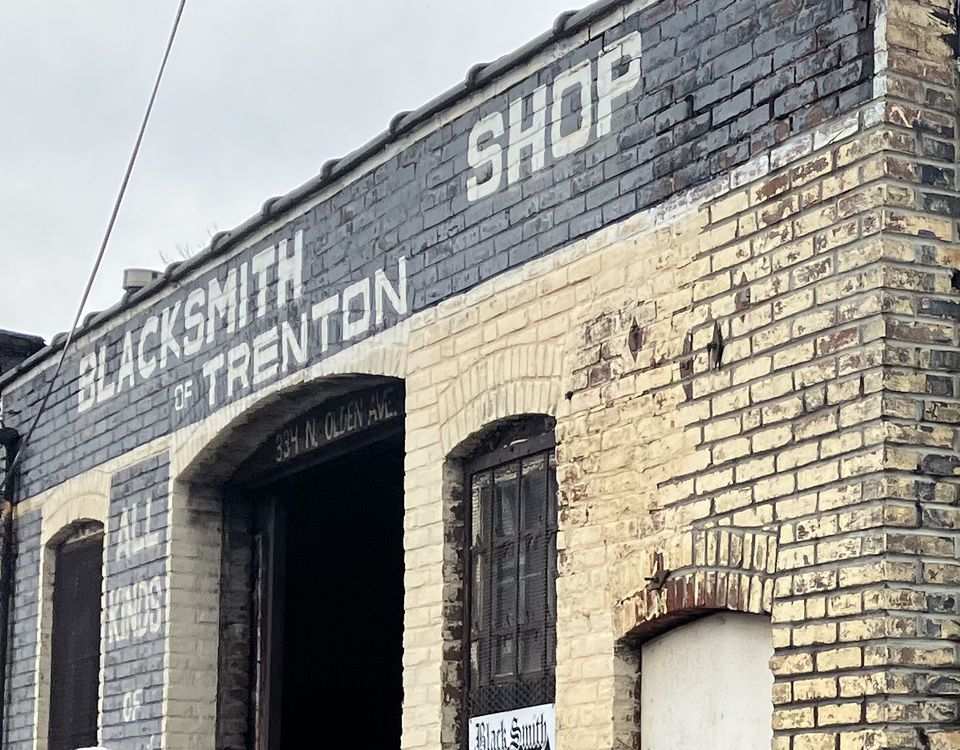
The earthly heroes at the Blacksmith of Trenton have demonstrated their own remarkable resilience by keeping the shop in business for the 200 years since it opened in 1823, making it one of the oldest continually operated establishments in the state, according to Alexander Parubchenko, the master blacksmith and longtime owner of the shop who started there in 1971.
“It’s the oldest one in New Jersey,” said Parubchenko, 82, known as Sasha, who grew up in Trenton, where he still lives.
Parubchenko was recruited as an apprentice by his father-in-law, who later bought the shop when its owner died and then passed it on to his son-in-law.
“I think there’s an older one in Boston and another one south of Washington, D.C. And the history of this is that it’s the only one that’s continually been working. Never closed down since 1823. Different owners came in, owned it, worked on it, and it’s still in business.”
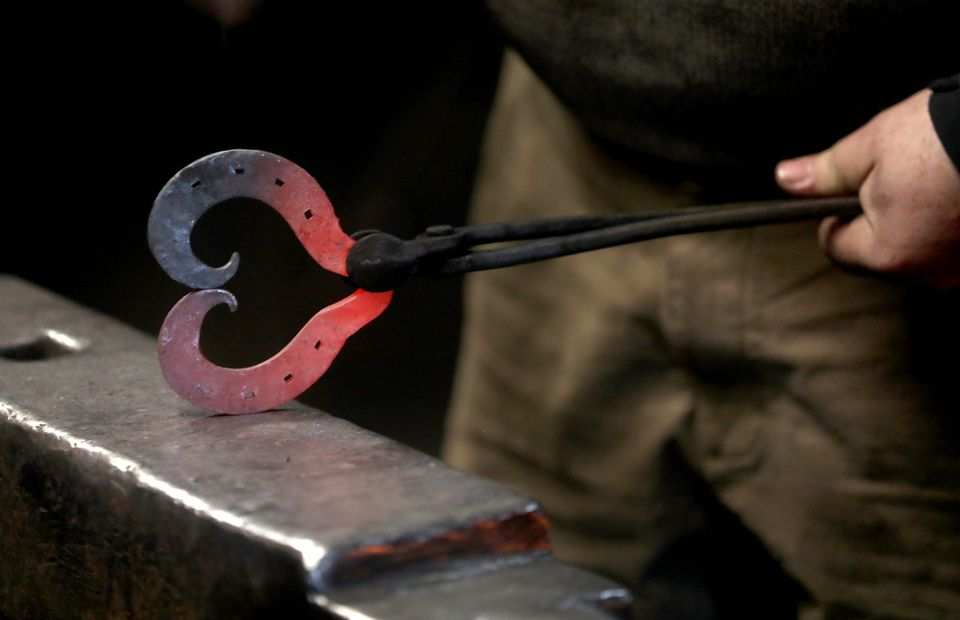
For two full centuries, through civil and world wars, depression, recessions, and technological advances that might have rendered less resilient, less determined craftspeople obsolete, the blacksmiths of Trenton continue to forge ahead in the digital age using little more than fire and water, hammers and anvils, along with age-old ingenuity.
When people are surprised that a commercial blacksmith shop still exists in the 21st Century, Parbuchenko informs them of his work on some of the nation’s most iconic structures and locations, including forging replacement pieces for the Statue of Liberty’s torch, and historically accurate chain fences for the U.S. Military Academy at West Point.
“I say that’s where a blacksmith comes in, doing that kind of craft work,” Parubchenko said during a recent visit to the shop. “That’s my love. I fill in a little niche that exists almost nowhere in America.”
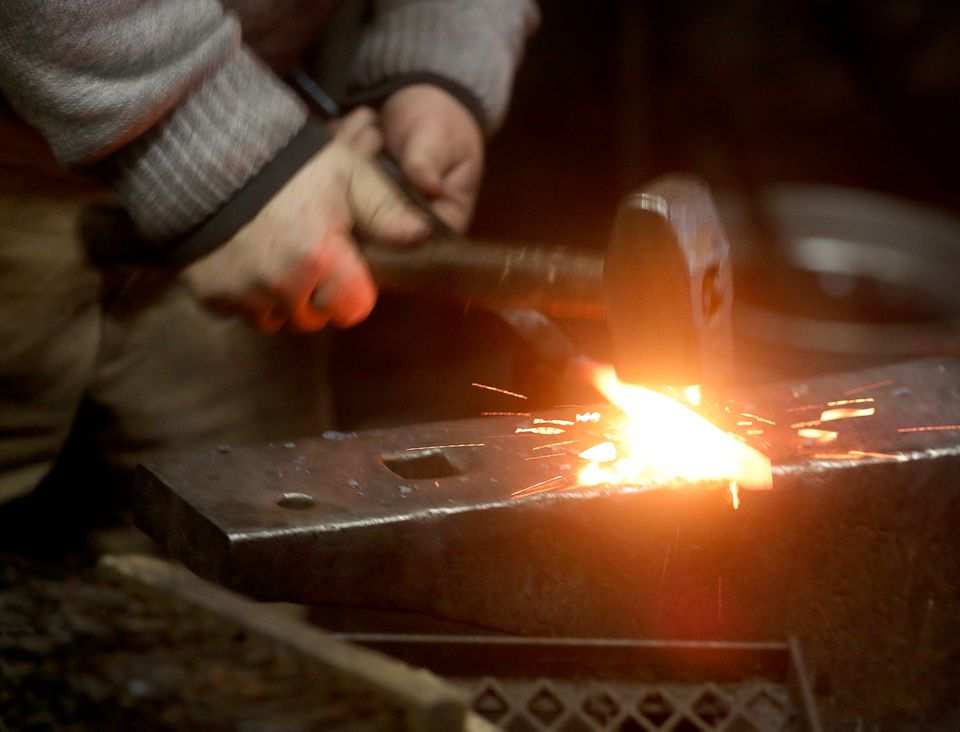
Parubchenko and the younger smiths at the shop do custom railings, sconces and other fixtures for private homes and businesses. But passers by the shop on Olden Street can purchase ready-made objects like barbecue grills, firewood holders, pokers, and decorative items like horseshoes fashioned into hearts.
“When I started in ‘71, people would occasionally would bring a horse, and I would shoe the horse. I’ve done that, I’ve done donkeys. Jackasses I won’t do,” he deadpans. “There’s too many in Trenton.”
Like many other smiths, Parubchenko is also a metal sculptor, and the nation’s main trade group is called the Artist-Blacksmith’s Association of North America, whose president, Leigh Morrell, estimated there were some 40,000 blacksmiths on the continent, ranging from full-time professionals to “weekend warriors or hobbyists.”
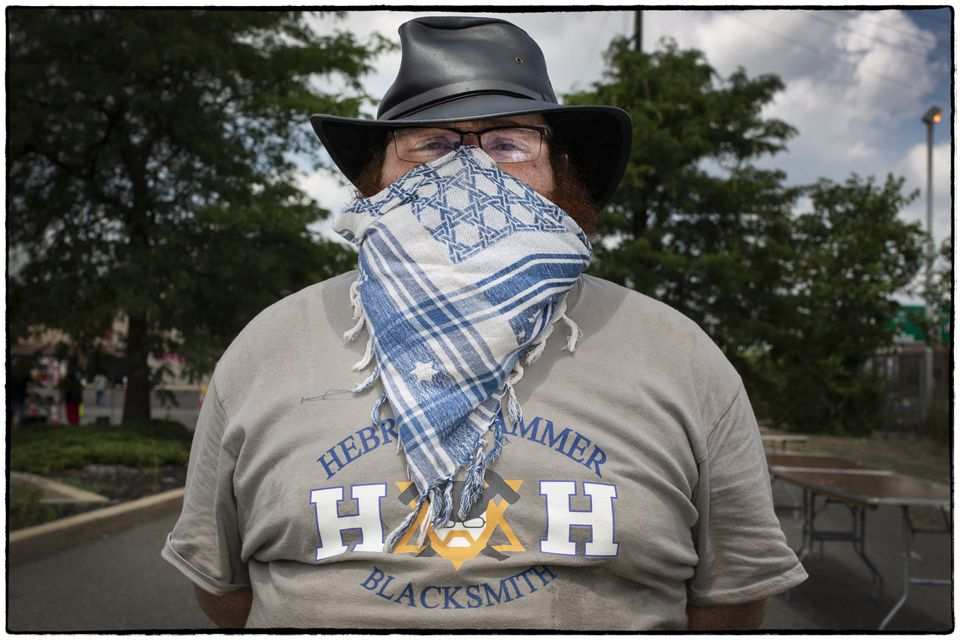
In the back of the Trenton shop there’s a pair of iron horses forged in a kind of rustic-punk style by Thomas Knezevich, 24, of Trenton, a ceramic artist, woodworker, and an apprentice at the shop who got into smithing for a change of media after the coronavirus pandemic began three years ago.
Watching the blacksmiths work is riveting, a spectacle combining the hypnotic glow of hot coals and metal with the clanging of hammer on iron, each strike sending yellow sparks arcing around the anvil like a tiny fireworks display. Despite modern ventilation — a concession to modern workplace health and safety rules — the dimly-lit shop has the earthy smell of a fireplace.
The shop’s more advanced technologies include an electric blower that replaced the old bellows to fan the flames of three brick forges built by Parubchenko. A Nazel power hammer patented in Philadelphia in 1905 pounds lengths of iron into flatter strips that can be fashioned into objects using a hand-held hammer and one of the three anvils dating from the late 19th century and weighing up to 250 pounds.
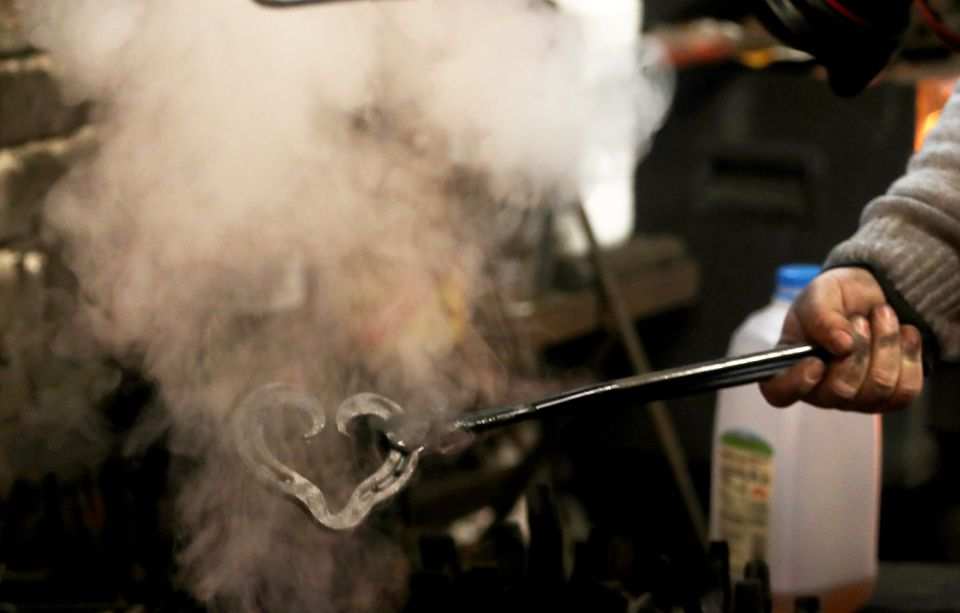
With the physical, visually compelling nature of the work, it’s no wonder that many blacksmiths of today are essentially performers. That is, they demonstrate their craft for audiences of children and adults, as instructors at educational institutions or as re-enactors and guides at shops preserved as living history museums.
One of the latter is the Old Millstone Forge in Somerset County, which was said to be the oldest continually operated blacksmith shop in the country before its last commercial blacksmith and owner, Edward Wyckoff, died in 1959 after smithing there for 64 years. The shop was later reopened and continues to be run by the non-profit Millstone Forge Association.
In Sussex County, the non-profit Peter’s Valley School of Craft in Sandyston Township offers smithing classes in the spring, summer and fall. Anna Koplik, the blacksmith fellow at Peter’s Valley, said that architectural blacksmithing for homes, businesses and institutions is how many smiths make their living.
“Whenever you have something that’s not a cookie-cutter-type railing, a blacksmith shop’s going to be the one to do it,” said Koplik, 29. But, she added, “the idea of the village blacksmith from back in the day, where you just walk in with your pan or home items that need to be fixed, that’s not as common anymore.”
Klopnik, who lives at Peter’s Valley during open months and travels for other smithing work during the winter, said she’s been hired by Parubchenko to take measurements and do other on-site work for railings he then forges at his shop.
It’s difficult to trace the number of blacksmiths or shops around the state, or their ages, because smithing is not a licensed profession and many smiths and businesses over the years morphed into related trades, including auto repair or body shops, industry leaders say.
“I don’t know of a lot of other shops that have survived throughout the years,” said Larry Brown, president of New Jersey Blacksmiths Association, a retired New York City Parks Department blacksmith and Staten Island resident, who accepted the position because there weren’t enough Garden State smiths with the time or inclination.
“There were a lot of shops that changed over when cars came around, they already knew how to work with metal, so they became mechanics. Not only that, but so many owners aged out.”
Other smiths in the Trenton shop include Daniel Lapidow, a burly and bearded Jewish blacksmith with business cards identifying him as “The Hebrew Hammer.”
“I was at a blacksmithing conference, and someone wanted me to go to another conference, and I mentioned I couldn’t go because it was on Yom Kippur. And someone said, ‘Ah, the Hebrew Hammer.’ And the name stuck with me,” said Lapidow, 30, who lives in Ewing. “There are a lot Jewish blacksmiths, I know tons of them. Every shtetl had a blacksmith.”
Despite harkening back to an age gone by, Lapidow said smiths were by no means opposed to technological advances, especially if they could save time and labor as interest in smithing began to wane in the early 20th Century and apprentices were hard to recruit.
“It opened up tons of doors for blacksmiths to do a lot more advanced stuff, bigger projects,” he said of the shop’s power hammer, which nonetheless isn’t equipped for the finesse jobs that only a blacksmith on an anvil can do. “That smooshes stuff, it makes big things smaller, it makes big work easier to manage. But eventually everything that goes on the power hammer is going to end up on the anvil.”
Knezevich, the apprentice, was about to start making a pair of fireplace thongs. He fed air into one of the forges, fanning the flames and waiting for the rod to turn white, meaning a temperature of about 2,500 degrees Fahrenheit. He didn’t want to strike before the iron was hot enough, which would spoil the rod.
“Certain metals require a higher heat, like wrought iron and high-carbon. Otherwise, basically that bond that holds it together will fray apart,” he said.
Despite the intense heat and flying sparks, neither Kenzeivch nor Lapidow wore work gloves. A spark will glance off your bare hand and do little harm, they said. But if a spark ends up inside your glove, it could result in a serious, penetrating burn. And, they said, a bare hand has a better feel for the hammer it’s holding.
Those are the kinds of insights Parubchenko has passed on to the younger smiths in his shop, and hopes they will pass on to the next generation.
He said his love for blacksmithing has kept him in the shop “seven days a week for half a century.”
“People say, ‘Why don’t you go on vacation?’ I say, ‘I do, in the shop. It’s my love, it’s my joy,’” he said. “You get a joy out of doing something creative, working with your hands, seeing the results, coming up with ideas. And the idea is developed, and it actually comes out as something beautiful and fantastic.”
Like many in his trade, Parubchenko had other jobs before smithing became his life’s work. He was born in Germany to Ukrainian parents who immigrated to New Jersey when he was child, settling in the capital city. He earned a degree in nuclear engineering from Rutgers, then joined the U.S. Air Force, where he served for nine years during the Vietnam era as a flight engineer and then a transport pilot. In addition to sculpting, his other artistic pursuits include playing viola with orchestras at Rutgers and in Mercer County.
Parubchenko, who has two grown children, lives in Trenton with his fifth wife, Liya. As an octogenarian, he knows his smithing days are numbered. And though neither of his daughters pursued blacksmithing professionally, he does plan to leave the shop in good, calloused hands on the condition they’ll keep the fires burning.
“Unfortunately, most places, they knock down the old buildings,” Parubchenko said. But, he added, “This is a graveyard of former owners and all their histories of what they were doing here, their lives in the shop. And it’s important for me to keep that going. And it’s going to be important for people to keep it going after me.”
___
© 2023 Advance Local Media LLC
Distributed by Tribune Content Agency, LLC.



